I promised a few weeks ago that I would blog about how I write a paper from start to finish. I was hoping to have screenshots of every stage of my paper writing, but obviously doing my own research, fieldwork and travelling to academic conferences to present papers (and writing those papers in haste!) didn’t allow me to do this in a much more planned manner. So here are 8 tips I use to write a research paper from start to finish.
1. Create an outline
This tip would be kind of obvious, but I am far from being the first one to suggest that writing an outline allows you to put complex ideas on paper in a sequential, articulate, cohererent form. If you’ve already started writing the paper, then Professor Rachael Cayley’s approach is the best – e.g. create a reverse outline. At any rate, you should have a skeleton of what your paper is going to look like. One way in which I do this is I break down my abstract into the sections that I need to fill out and/or the questions I need to answer to have my paper actually show my full argument. So, the outline comes directly from the paper abstract. What I have found is that often times, my outline doesn’t show the same thing that the paper does at the end of it. That’s fine. At least you answered the questions and/or filled the sections you needed to and refined your abstract and paper on the basis of these responses.
2. Write the abstract and introduction first
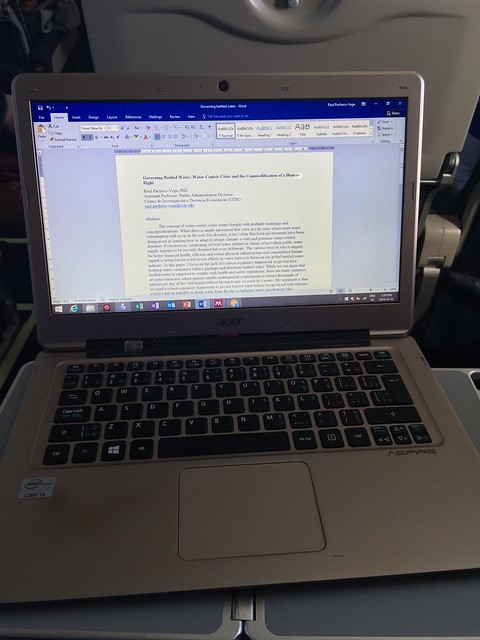
The one sure way in which I know I am going to make progress on a paper is writing the abstract and the introduction. Normally what I do is I expand the abstract and write the introduction from the abstract. I also make sure that I develop the structure of the paper as I write the introduction. Often times, this will change and I will have to come back and redraft this section, but at least I have a basic structure for the paper.
2. Break down the paper into separate documents.
I am someone who doesn’t react well to word counts. In fact, I loved a recent blog post by Tseen Khoo entitled “Your Word Count Means Nothing to Me“. I am disciplined about writing every day for two hours, but I don’t really like the idea of “I write 3,500 words every 1.5 hours”. Some days I write a lot, some days I write much less. And some days, I just simply can’t write (though I summarize papers and reflect on them during my #AcWri period those days to keep generating text that I might use at some point, particularly research and reading memoranda).
So what I do instead is, I break the paper down into sections for which I then create separate documents. For example, for my recent paper on environmental mobilizations against Nestlé in British Columbia and in California, I created a separate document for the story around Nestlé in British Columbia and another one for the story on Nestlé in California. To avoid getting frustrated, I just focus on writing on one of the sections at a time.
4. Begin drafting some conclusions as you complete the analysis
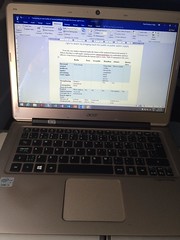 As I write my paper, I always make sure to include some early conclusions. For example, for my recent paper on the comparative analysis of 6 remunicipalization cases, as I completed each section and the history of each remunicipalization, I started integrating and summarizing my results in the analysis section and immediately after, I wrote a couple of sentences about the implications of my analysis for the conclusions section. By the time I finished the sixth case, I had 6 paragraphs in the conclusions section of my paper. This is particularly important as it helps me see the light at the end of the tunnel. As I was finishing the table that summarized my paper’s findings, I was able to also have a feeling of completion. By the time I had completed 3 case studies, my table looked quasi complete and I began feeling excited about finishing the paper.
As I write my paper, I always make sure to include some early conclusions. For example, for my recent paper on the comparative analysis of 6 remunicipalization cases, as I completed each section and the history of each remunicipalization, I started integrating and summarizing my results in the analysis section and immediately after, I wrote a couple of sentences about the implications of my analysis for the conclusions section. By the time I finished the sixth case, I had 6 paragraphs in the conclusions section of my paper. This is particularly important as it helps me see the light at the end of the tunnel. As I was finishing the table that summarized my paper’s findings, I was able to also have a feeling of completion. By the time I had completed 3 case studies, my table looked quasi complete and I began feeling excited about finishing the paper.
5. Make sure you’ve told all the stories
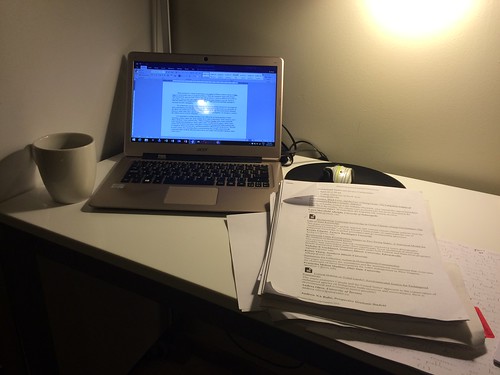
As I was trying to finish my MPSA 2016 remunicipalizations paper (with a comparative table of 6 cases – Paris, Grenoble, Berlin, Atlanta, Hamilton and Buenos Aires), I got frustrated that I had assembled the paper too early for my liking and therefore I was not sure if I had completely told all the stories. For me, a story is fully told when there is at least 4-6 paragraphs that outline the overall issue and provide some analysis. That’s why at least 4-6 paragraphs would be necessary (history, the issue at hand, why is this issue relevant, what does my theoretical framework say about this particular issue) to fully outline and sketch the story. So, while I recognize that I had assembled the paper early, I used a summary table to ensure that I had already completely told all the stories. This table also helped me finish the paper because I could use the insights gained from this exercise for the analysis section and the conclusions section (see tip 4).
6. Leave text for the next day
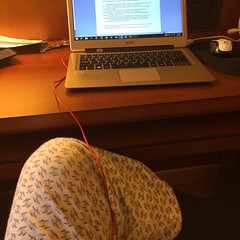 This tip sounds counter-intuitive, but this is exactly how I finish papers: I leave myself some room to complete sections, paragraphs and sentences. For example, for my environmental mobilizations paper, I wrote the section on the history of the environmental protest against Nestlé in British Columbia, on the Tuesday, and even though I wasn’t exhausted, I decided to just start the first few sentences of the California case. This tip is particularly important to me because I write in the morning. I start at 4 or 4:30am, wake up, start a pot of coffee, and write from 4-6, 4:30-6:30 or 5-7 am, because those are the hours when I am most productive.
This tip sounds counter-intuitive, but this is exactly how I finish papers: I leave myself some room to complete sections, paragraphs and sentences. For example, for my environmental mobilizations paper, I wrote the section on the history of the environmental protest against Nestlé in British Columbia, on the Tuesday, and even though I wasn’t exhausted, I decided to just start the first few sentences of the California case. This tip is particularly important to me because I write in the morning. I start at 4 or 4:30am, wake up, start a pot of coffee, and write from 4-6, 4:30-6:30 or 5-7 am, because those are the hours when I am most productive.
7. Don’t write beyond your physical limits
Recently, I finished a book chapter by inserting 3,500 words that I wrote in the first 1.5 hours of the day into a draft that had 3,400 words. So I finished an 8,000 word paper in about 2 or 3 days. Obviously this only works if you’ve already simmered and thought about the paper for a very long time. I had been spinning my wheels for the past few days when I knew that I had made no progress on this paper in the past 4.75 months. This week, I just decided that I needed sleep and I stopped trying to write (yes, I too try to push my limits and do some “spree-writing”) so I went to sleep early. I woke up on Wednesday at 5 am, and by 6:30pm, I had finished the book chapter.
The reality is that academia has this toxic culture of overworking as though it were a badge of honor. But I can’t do that anymore. I used to work 24 hours in a row, sometimes even 36. Right now I can’t push my physical limits and I will not endorse overwork. So I know for a fact that I improved my writing since I started sleeping at a decent hour and at least 6 hours a day. And that’s exactly why I never write beyond my physical limits even if I am not done with the paper and I have a deadline. I prefer to ask for an extension or simply say “No, I can’t write your book chapter/paper/article” because I will no longer push myself beyond my physical limits.
8. Assemble the paper 80%-90% into the process
When I assemble a paper too early into the process, I end up seeing all the gaps in the paper and this demoralizes me. So now what I do, is I assemble the paper about 80-90% into the process. I assemble the introduction, conclusion, body of the paper and I collect my handwritten notes of what needs to be improved and corrected. And then I go over the paper and figure out if I am missing something. That way, whenever I sit down and work on this paper again, I feel that I am about to be done.
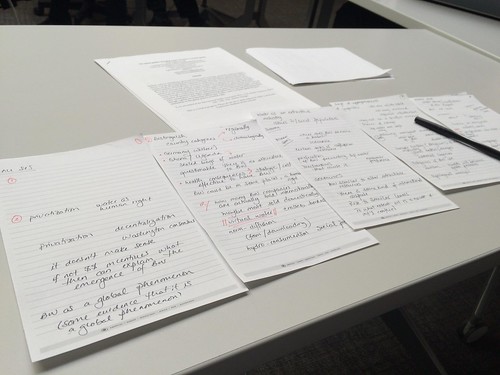
Applying this process helped me complete 3 draft papers (2 for MPSA, 1 book chapter, and two I’m working on) in about 5 weeks, all the while travelling every week and teaching one class every week. This is not to brag, but it’s just to show that if I follow a systematic process, I can move forward even under conditions of relative duress (e.g. when I am travelling). So, every single day I was able to work on research and write for a few hours because I was working every day on a different, single component of my paper and research project. As I have often said, I follow Aunty Acid’s advice: I take life one panic attack at a time.
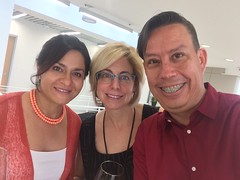 When my colleague Marcela Lopez-Vallejo told me her long-time coauthor and friend Dr. Debora VanNijnatten (Associate Professor and Chair of the Political Science department at Wilfrid Laurier University) would be coming to our campus of CIDE for a short visit, I was thrilled. Debora and I know each other from a very long time ago, we’ve been friends and colleagues for a very long time, and though we haven’t coauthored anything together, we’ve both been aware of each other’s work for pretty much all of my academic career.
When my colleague Marcela Lopez-Vallejo told me her long-time coauthor and friend Dr. Debora VanNijnatten (Associate Professor and Chair of the Political Science department at Wilfrid Laurier University) would be coming to our campus of CIDE for a short visit, I was thrilled. Debora and I know each other from a very long time ago, we’ve been friends and colleagues for a very long time, and though we haven’t coauthored anything together, we’ve both been aware of each other’s work for pretty much all of my academic career. 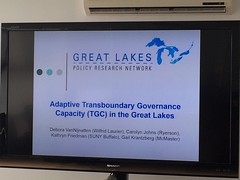 I met Debora at a workshop organized by El Colegio de Mexico on North American studies, when I was just starting my PhD. So it was very nice to see each other again now in this setting. Granted, I had seen Debora a few times throughout the years (most recently at the International Studies Association meeting where she presented a very preliminary version of this paper, a couple of years ago). But this was the first time we actually had time to hang out, and do a series of scholarly events.
I met Debora at a workshop organized by El Colegio de Mexico on North American studies, when I was just starting my PhD. So it was very nice to see each other again now in this setting. Granted, I had seen Debora a few times throughout the years (most recently at the International Studies Association meeting where she presented a very preliminary version of this paper, a couple of years ago). But this was the first time we actually had time to hang out, and do a series of scholarly events. 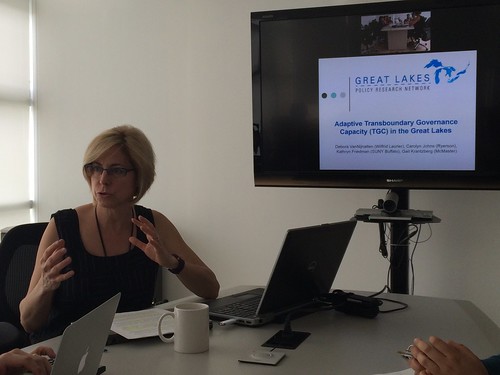
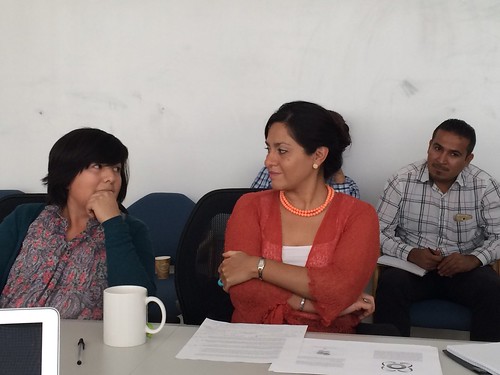
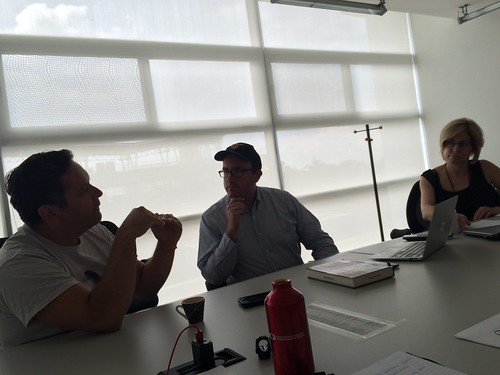
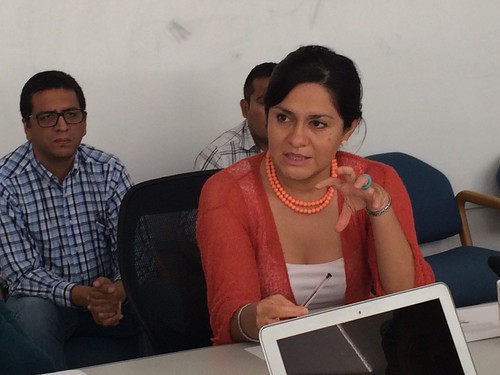







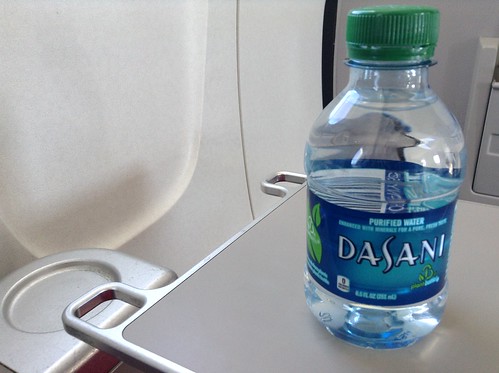

Recent Comments